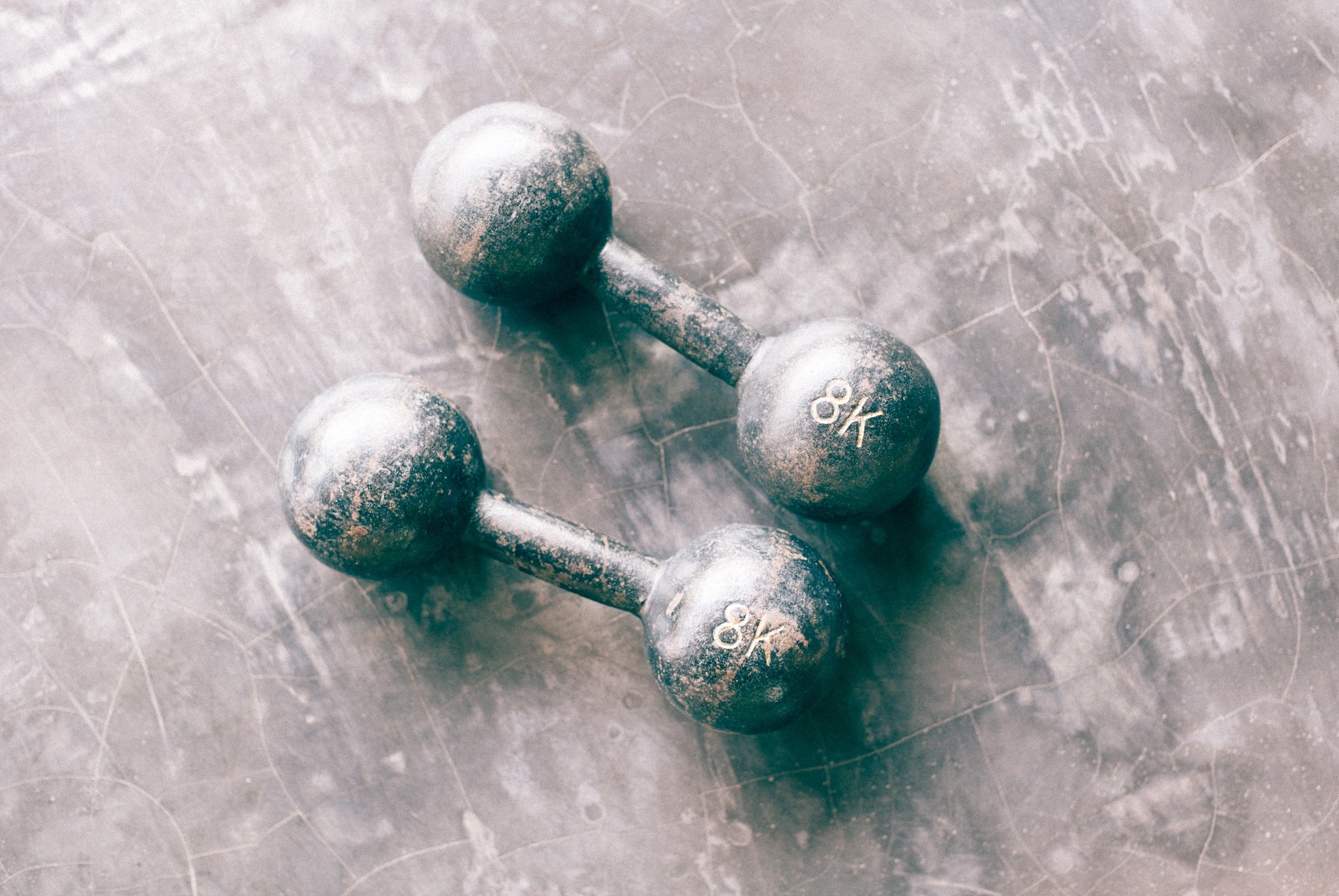You’re on a mission to shed some pounds and get in shape, but going to the gym seems impossible with your busy schedule. Well, worry no more! In this article, we will show you how to lose weight quickly and effectively by making simple changes at home. With just a month’s time, you will discover easy and practical tips that will help you on your weight loss journey, without the need for fancy equipment or expensive gym memberships. So, get ready to transform your body and achieve your weight loss goals, all from the comfort of your own home.

Set a Realistic Goal
Losing weight requires setting a realistic goal that is achievable within a certain period of time. To determine your ideal weight, you can consult with a healthcare professional or use online tools that take into account factors such as height, gender, age, and body composition. This will give you a target weight to work towards. It’s important to establish a realistic timeline for your weight loss journey as well. Rapid weight loss may not be sustainable in the long term and can have detrimental effects on your health. Aim for a gradual and steady weight loss of 1-2 pounds per week.
Create a Calorie Deficit
To lose weight, you need to create a calorie deficit, which means consuming fewer calories than your body needs for maintenance. This can be achieved through a combination of reducing calorie intake and increasing physical activity.
First, calculate your daily calorie needs using an online calculator or consulting with a nutritionist. This will give you an estimate of how many calories your body needs to maintain its current weight. To start losing weight, aim to reduce your calorie intake by 500-1000 calories per day. This can be achieved through portion control, choosing nutrient-dense foods, and making healthier food choices.
In addition to reducing calorie intake, it’s important to increase your physical activity. Regular exercise not only burns calories but also helps to boost your metabolism and improve overall fitness. Find activities that you enjoy and try to incorporate them into your daily routine. This can include activities such as walking, running, cycling, swimming, or attending fitness classes. Aim for at least 150 minutes of moderate-intensity aerobic exercise or 75 minutes of vigorous-intensity exercise per week, along with strength training exercises at least twice a week.

Eat a Balanced Diet
A balanced diet is crucial for weight loss and overall health. It provides your body with essential nutrients while helping you maintain a calorie deficit. Here are some key tips for creating a balanced diet:
-
Include lean protein: Protein is essential for repairing and building tissues, and it also helps you feel fuller for longer. Incorporate lean sources of protein such as chicken, turkey, fish, tofu, beans, and lentils into your meals.
-
Choose complex carbohydrates: Opt for whole grains, such as brown rice, quinoa, oats, and whole wheat bread, instead of refined grains. Complex carbohydrates provide sustained energy and are rich in fiber, which aids in digestion and helps you feel satisfied.
-
Incorporate healthy fats: Don’t be afraid of fats; just make sure to choose the right ones. Include sources of healthy fats, such as avocados, nuts, seeds, and olive oil, in your diet. These fats are important for brain function, hormone production, and the absorption of fat-soluble vitamins.
-
Eat plenty of fruits and vegetables: These should be the foundation of your meals, as they are low in calories and high in vitamins, minerals, and fiber. Aim for a variety of colorful fruits and vegetables to ensure a diverse nutrient intake.
Stay Hydrated
Drinking enough water is crucial for weight loss and overall health. Not only does it help keep you hydrated, but it can also help control appetite and reduce calorie intake. Here are some tips for staying hydrated:
-
Drink an adequate amount of water: The general recommendation is to drink at least 8 cups (64 ounces) of water per day, but individual needs may vary. To stay hydrated, carry a water bottle with you throughout the day and sip on water regularly.
-
Limit sugary beverages and alcohol: Sugary drinks such as soda, fruit juices, and energy drinks are high in calories and can contribute to weight gain. Opt for water, herbal tea, or unsweetened drinks instead. The same goes for alcohol, which is high in calories and can negatively impact your weight loss efforts. If you choose to drink alcohol, do so in moderation.

Manage Portion Sizes
Controlling portion sizes is important for weight loss, as it helps you maintain a calorie deficit. Here are some strategies for managing portion sizes:
-
Use smaller plates and bowls: Using smaller dishware can help trick your mind into thinking you are eating more than you actually are. This can help reduce the amount of food you consume without feeling deprived.
-
Practice mindful eating: Pay attention to your body’s hunger and fullness cues. Eat slowly and savor each bite, focusing on the taste, texture, and smell of your food. This can help prevent overeating and promote a sense of satisfaction.
-
Avoid eating straight from packages: Instead of mindlessly snacking out of a bag or a box, portion out your food onto a plate or into a bowl. This will make it easier to keep track of how much you are eating and prevent mindless grazing.
Avoid Junk Food
Junk food is high in calories, unhealthy fats, sugar, and sodium, and offers little to no nutritional value. To lose weight, it’s important to eliminate or significantly reduce your intake of processed and fried foods. Instead, focus on nourishing your body with whole, unprocessed foods. Here are some tips for avoiding junk food:
-
Eliminate processed and fried foods: Processed foods, such as packaged snacks, frozen meals, and fast food, are often high in calories, unhealthy fats, and additives. Fried foods, such as French fries, chicken nuggets, and potato chips, are also calorie-dense and can sabotage your weight loss efforts. Opt for homemade meals made with fresh ingredients whenever possible.
-
Reduce intake of sugary snacks and desserts: Foods such as candy, cookies, cakes, and ice cream are loaded with added sugars and can quickly contribute to weight gain. Limit your intake of these sweet treats and opt for healthier alternatives such as fresh fruit, yogurt, or dark chocolate in moderation.
Plan Your Meals
Planning your meals in advance can help you make healthier food choices, control portion sizes, and stay on track with your weight loss goals. Here are some tips for meal planning:
-
Create a weekly meal plan: Take some time at the beginning of each week to plan your meals and snacks. Include a variety of nutrient-dense foods and try to incorporate different flavors, textures, and colors into your meals.
-
Prepare meals in advance: Batch cooking or meal prepping can be a time-saving strategy that ensures you have healthy meals ready to go throughout the week. Cook large quantities of staple ingredients, such as lean proteins, whole grains, and roasted vegetables, and portion them out into individual containers for easy grab-and-go meals.
-
Stock up on healthy pantry staples: Having a well-stocked pantry with healthy staples can make meal planning and preparation easier. Keep items such as canned beans, whole grains, nuts, seeds, herbs, and spices on hand to add flavor and nutrition to your meals.
Get Moving
Regular physical activity is essential for weight loss and overall well-being. It not only burns calories but also helps to boost metabolism and improve muscle tone. Here are some tips for getting moving:
-
Include aerobic exercises: Aim for at least 150 minutes of moderate-intensity aerobic exercise or 75 minutes of vigorous-intensity exercise per week. This can include activities such as brisk walking, jogging, cycling, swimming, dancing, or attending fitness classes.
-
Incorporate strength training: Strength training helps to build and maintain muscle mass, which can increase your metabolism and help you burn more calories throughout the day. Incorporate exercises that target all major muscle groups at least twice a week. This can include lifting weights, using resistance bands, or doing bodyweight exercises.
-
Engage in active hobbies and activities: Find activities that you enjoy and that keep you active. This can include gardening, hiking, playing a sport, or even just taking the stairs instead of the elevator. The more you enjoy the activity, the more likely you are to stick with it.
Track Your Progress
Monitoring your progress is important to stay motivated and gauge the effectiveness of your weight loss efforts. Here are some ways to track your progress:
-
Monitor weight loss: Weigh yourself regularly, but not obsessively, to track your weight loss progress. Keep in mind that weight can fluctuate due to factors such as water retention and muscle gain, so focus on the overall trend rather than day-to-day changes.
-
Keep a food and exercise diary: Write down everything you eat and drink, as well as your physical activity, in a diary or using a mobile app. This can help you identify any patterns or behaviors that may be hindering your progress and allow you to make necessary adjustments.
-
Measure body measurements: In addition to tracking weight, take measurements of your waist, hips, thighs, and arms. This can give you a better indication of changes in body composition, even if the scale doesn’t show a significant change.
Get Enough Sleep
Adequate sleep is often overlooked but plays a crucial role in weight loss and overall health. Lack of sleep can disrupt hormones that regulate appetite and lead to increased cravings and overeating. Here are some tips for getting enough sleep:
-
Establish a consistent sleep schedule: Try to go to bed and wake up at the same time every day, even on weekends. This helps regulate your body’s internal clock and improve the quality of your sleep.
-
Create a sleep-friendly environment: Make your bedroom a peaceful and comfortable space. Keep it cool, dark, and quiet, and invest in a comfortable mattress and pillows. Avoid using electronic devices, such as smartphones and tablets, before bed as the blue light emitted can interfere with sleep.
By following these comprehensive steps, you can achieve your weight loss goals in a month. Remember, the key is to set realistic goals, create a calorie deficit, eat a balanced diet, stay hydrated, manage portion sizes, avoid junk food, plan your meals, get moving, track your progress, and prioritize sleep. With determination, consistency, and a positive mindset, you can make significant progress towards a healthier weight and a happier you!



